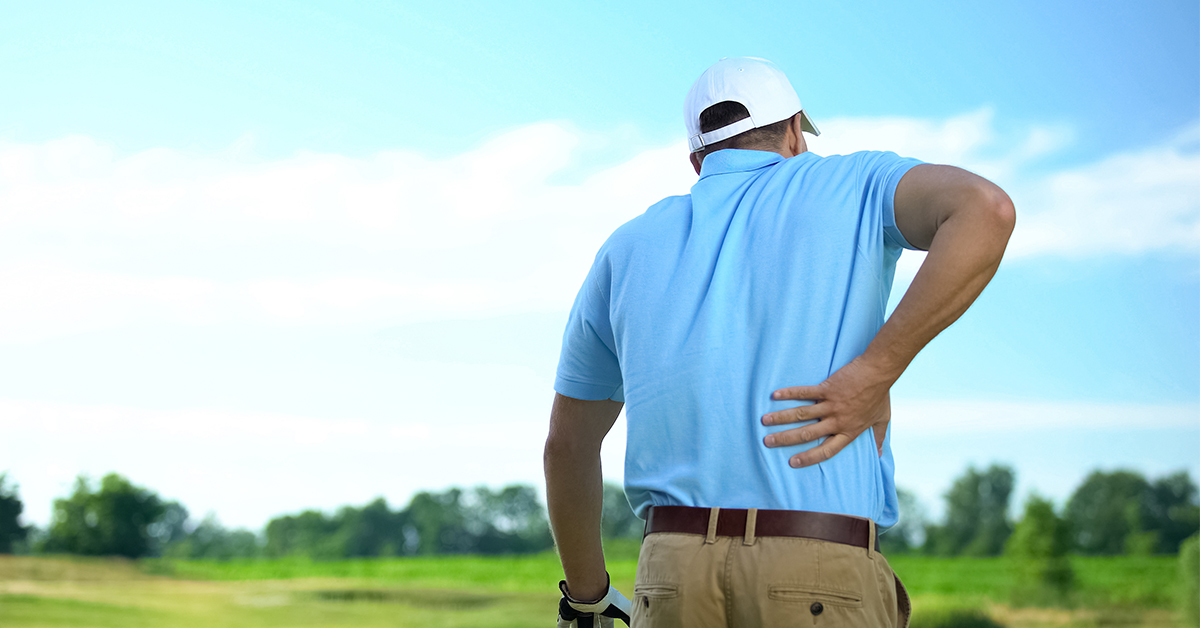Lower Back Pain: When to See a Doctor

Lower back pain, also called lumbago, is one of the most common and often debilitating conditions reported by adults. Up to 85% of all people will experience low back pain during their lifetime.
Causes of Back Pain
For most people, low back pain is not caused by an abnormality, specific disease, or serious spinal injury. Lumbago, with no identifiable cause, often resolves on its own within a few weeks.
Sometimes, this pain is due to specific conditions such as:
- A bulging or herniated disc; also called slipped disc
- Arthritis which affects spinal joints
- Bony growths on the vertebrae
- Narrowing in the spinal canal
- An out of place vertebrae
Very rarely, this pain can be due to an infection or a tumor.
What is a Slipped Disc?
The backbone contains 26 spinal bones called vertebrae. In between the vertebrae are soft discs filled with a cushioning substance. The discs allow movement between the vertebrae, enabling the backbone to bend and stretch.
Wear and tear on spinal discs can cause the outer covering on the disc to weaken or tear. This can lead to bulging, herniation, or rupture and is sometimes called a slipped disc. The lower back, or lumbar region, is the most common area affected.
Are You at Risk for a Slipped Disc?
Slipped discs occur more often in middle-aged and older men. Risk factors include:
- Strenuous activity
- Lifting heavy objects
- Being overweight
- Repetitive bending or twisting of the lower back
- Sitting or standing in the same position for long hours
- Inactive lifestyle
- Smoking
Symptoms of a Slipped Disc
Sometimes a slipped disc causes no symptoms. Others can irritate nearby nerves and result in symptoms such as:
- Back pain
- Sciatica, or pain through the buttock and down the back of either leg
- Tingling down one or more legs
- Numbness
- Muscle weakness
When to See a Doctor
It is important to seek urgent medical care if your pain is caused by a serious fall or injury. See a doctor immediately if the pain is so severe it is difficult to perform simple tasks or if accompanied by:
- Fever
- Abdominal or chest pain
- Leg weakness
- Difficulty emptying the bladder
- Vomiting
- Blood in the urine or stool
- Loss of bladder or bowel control
- Weight loss
If your pain does not resolve with at-home treatment within a few weeks, it is important to see a doctor – usually a physiatrist (pain management doctor) or neurosurgeon. They will help identify the root cause of your pain. Different causes may require different types of treatment.
Back Pain Treatment
Mild lower back pain may resolve quickly, responding to simple treatments such as:
- Gentle stretching
- Applying a heating pad
- Taking an over-the-counter nonsteroidal anti-inflammatory medicine
- Spinal manipulation
- Acupuncture
- Massage
It may be necessary to see a physiatrist or neurosurgeon for low back pain that does not start to improve after 4 weeks or is related to an injury. The doctor may recommend:
- Medicines to relax the muscles
- Injection of medicines that relieve pain and reduce swelling
- Physical therapy
- Possible surgery
A small number of people with a slipped disc experience chronic pain, weakness, loss of bladder or bowel control, or loss of sensation. In such circumstances, surgical removal of disc material that presses on the nerve causing these symptoms may be necessary.
Other conditions may require different types of surgery, depending on the cause. Generally, surgery is a last resort when other treatments don’t work.
How to Reduce the Risk of Developing Lower Back Pain
An effective way to prevent lower back pain is to exercise regularly. Exercise and stretching help to maintain and improve flexibility, strength, and endurance. Other ways to reduce the risk of developing low back pain are to:
- Avoid sitting for extended periods
- Avoid standing in the same position for a prolonged time
- Maintain a healthy weight
- Maintain good posture
- Use proper lifting techniques
Low back pain is a complex issue that can make it difficult to enjoy usual activities. Don’t suffer from nagging symptoms of back pain – schedule an appointment today!

